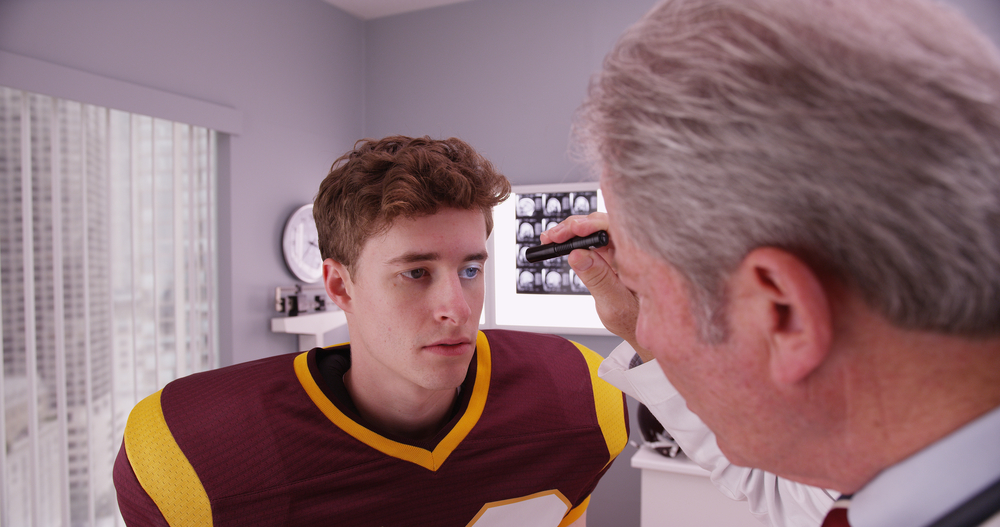
A concussion is a type of traumatic brain injury (TBI) that occurs when the head experiences a sudden impact or jolt, causing the brain to move rapidly within the skull. This can lead to a disruption in normal brain function, often resulting in a variety of physical, cognitive, and emotional symptoms. While the immediate effects of a concussion may be evident, such as headaches or dizziness, the long-term impact on the body, especially the eyes, can be less obvious and often overlooked.
How Concussions Can Impact Vision
The intricate connection between the brain and the eyes means that a concussion can have a significant impact on various visual functions. The brain plays a crucial role in processing and interpreting visual information, and when it is injured, the eyes can be affected in several ways. Concussions can lead to a range of vision-related problems, including:
Blurred or double vision
Sensitivity to light or glare
Difficulty with eye tracking and focusing
Reduced visual acuity
Impaired depth perception
Reduced peripheral vision
Eye strain and fatigue
These vision problems can make everyday tasks, such as reading, driving, or using a computer, challenging and can significantly impact a person's quality of life.
The Importance of Early Diagnosis for Personalized Treatment
Early diagnosis and proper treatment of post-concussion vision problems are crucial for achieving the best possible outcomes. A comprehensive eye examination can help identify the specific vision-related issues caused by the concussion.
Through a thorough assessment, your optometrist can determine the extent of the visual impairment and develop a personalized treatment plan. By addressing the vision-related symptoms early, you can minimize the long-term impact of the concussion and improve your overall quality of life.
Neuro-Vision Rehabilitation for Post-Concussion Vision Problems
In cases where a concussion has resulted in persistent vision problems, a specialized approach called neuro-vision rehabilitation may be recommended. This type of rehabilitation focuses on retraining the brain to process visual information more effectively, helping to improve visual function and reduce symptoms.
Neuro-vision rehabilitation may involve a range of techniques, such as:
Eye tracking exercises
Visual processing and perception training
Depth perception and spatial awareness activities
Strategies to improve reading and computer use
Techniques to reduce light sensitivity and eye strain
The goal of neuro-vision rehabilitation is to help the brain adapt and compensate for the changes caused by the concussion, enabling you to regain your visual abilities and participate in daily activities more comfortably.
Schedule Your Consultation with Vantage Point Eyes Today
Concussions can have a significant impact on the eyes and visual system, leading to a range of problems that can significantly affect your quality of life. By understanding the potential vision-related consequences of a concussion and seeking prompt medical attention, you can take the necessary steps to address these issues and work towards a full recovery.
At Vantage Point Eyes, we are dedicated to providing personalized care and treatment for individuals who have experienced a concussion. Visit our office in Woodbury, Minnesota, or call (651) 504-5901 to learn how neuro-vision rehabilitation can help you regain your visual abilities and improve your overall well-being.





